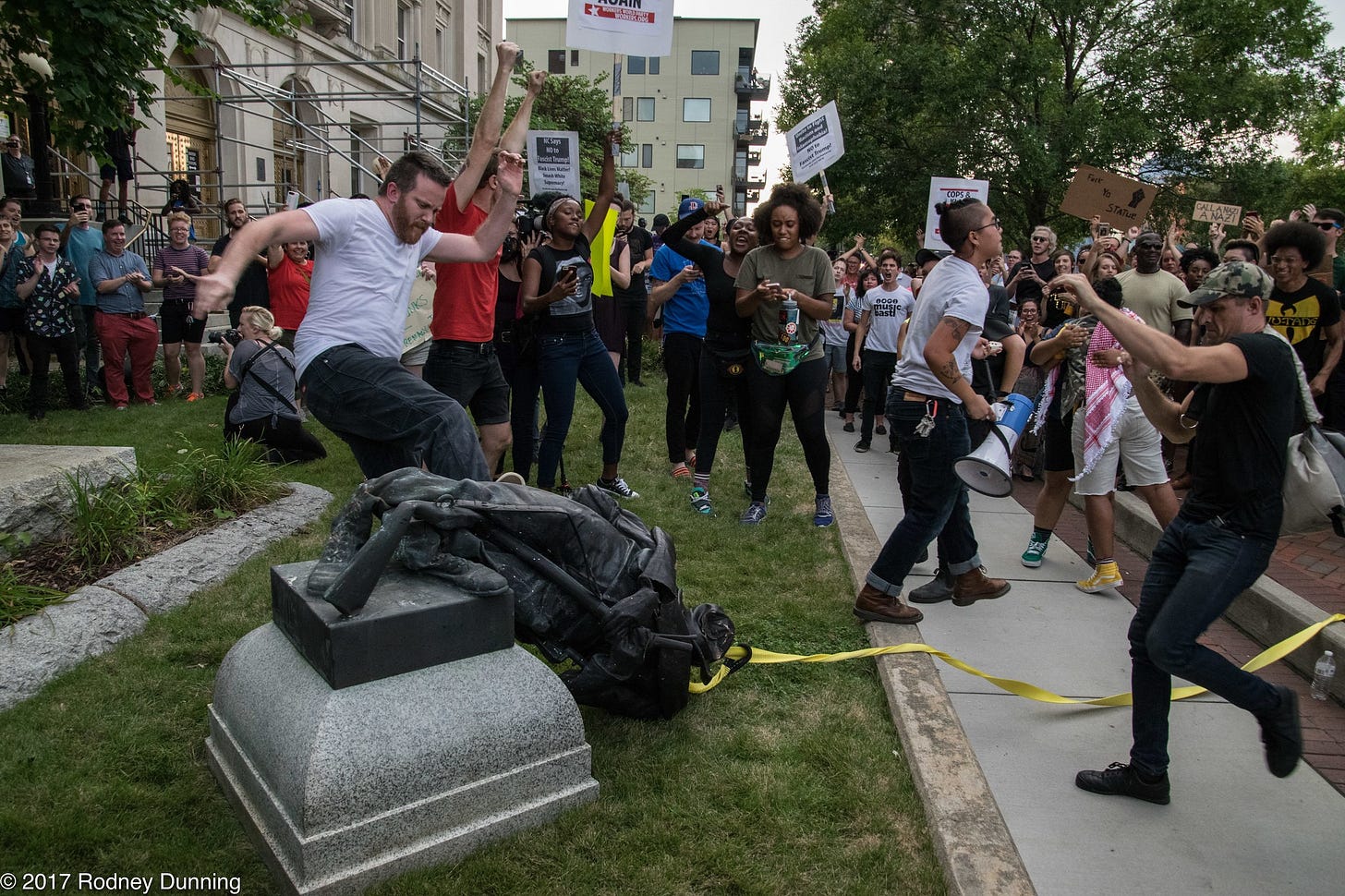“Stop Talking About That”
Working-class politics can’t avoid fighting white and male privilege
By Tom Goodkind
It’s inevitable that in a period of mass racist, misogynist, and homophobic backlash against the second half of the 20th century (including backlash within some sections of the working class), there will be calls among socialists to "stop talking about that." Bhaskar Sunkara's "The Path for Socialism Is Focus" is a case in point. Sunkara is right about rooting ourselves in working-class communities, and right about identifying villains. He’s right about the need for credible policy answers on issues from immigration to housing (not just "socialism will fix it"). And he's right to criticize "identity" politics, in the sense that "identity" is fundamentally a subjective category: it's about who you think you are, or even want to be.
But he's wrong about a politics "ruthlessly focused" on the "universal appeal" of economic demands, and he's wrong that "a rhetoric and program built to attract working people"—many millions of whom are racially, nationally, and gender oppressed, like the many who rose up four short years ago in the BLM rebellion—must avoid these objective issues. National oppression and privilege, for example, are objective categories at the heart of class rule in this country. If you're white, you bear oppressor nation privilege, whether you think you do or not, and if you're Black or Brown you're oppressed, whether you think you are or not. The same goes for patriarchy and male privilege.
The socialist left historically has tried a thousand things that don't work, and one of the most common is wishing away national oppression and national privilege and replacing the fight against them (rather than linking them) with "common economic demands." This fails to account for the structural role that racial and national oppression play within US capitalism, and the particular role that the imposition of white privilege—which is in the midst of one of its periodic restructurings—plays in US working-class life.
Sunkara himself acknowledges that his position is “a politics that is reductionist by design.” His argument is indeed reductionist, but it’s not politics; it is economism in the precise sense that Lenin often criticized: the shrinking of a broad political project and broad working-class leadership responsibilities to narrow economic demands. As Lenin said in Once Again on the Trade Unions, “Politics must take precedence over economics. To argue otherwise is to forget the ABC of Marxism.”
What’s “political” about the fights against white supremacy and patriarchy? They go beyond ruling class exploitation to address how the ruling class continues to exploit—in other words, how the ruling class rules, which is what politics are all about. When it comes to white supremacy, male supremacy, and cisheteropatriarchy, if you don't hit them, they won't fall. And if they don't fall, we won't rise.

Interested in reading more about national oppression and privilege? Check out:
Liberation Road’s “Unity Statement on Racism, National Oppression, Self-Determination, and Strategy for U.S. Socialism”
¡Adelante! a newsletter by Liberation Road members on Chicano Liberation
The Cost of Privilege: Taking on the System of White Supremacy and Racism, by Chip Smith
Reluctant Reformers: Racism and Social Reform Movements in the United States, by Robert L. Allen and Chude Pamela Allen
Black Awakening in Capitalist America, by Robert L. Allen
A House Divided: Labor and White Supremacy, by Roxanne Mitchell and Frank Weiss
The Invention of the White Race, Vols 1 and 2, by Theodore W. Allen
Tom Goodkind is a longtime machinist, rank-and-file labor activist, union president, and Liberation Road member.


Would be great to discuss this article on my podcast in the new year. I'm just about everywhere so feel free to reach out. or reply to this post and we can set it up. I chatted with some of your members and got couple of your pamphlets for our free books table at Socialism 2024. Solidarity!
'The worm on the hook is quite real and juicy, but is it in the interest of the fish?'
A quote from Ted Allen in one of our old 'Harper's Ferry Organization' study groups, where he explained why the white skin privilege was never in the class interest of any worker, regardless of skin color. These days many people use the terminology of white-skin privilege (or want avoid it), but can't see this proletarian version of it by the man who coined the term.